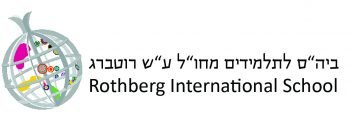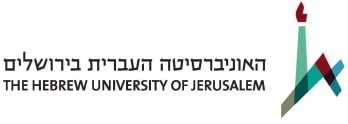Why M.A. in Islamic & Middle Eastern Studies?
- Study the religions, politics, histories and cultures of the modern Middle East
- Immerse yourself in Modern Standard Arabic and other Middle Eastern languages
- Live in Jerusalem and earn a degree from one of the region’s top universities.
- Online study option is available.
In today’s world of globalization, mass immigration, religious fundamentalism, and energy dependence, the events taking place in the Middle East have repercussions felt around the world. Offered by the Hebrew University’s Rothberg International School (RIS) in conjunction with the Department of Islamic & Middle Eastern Studies, the M.A. in Islamic & Middle Eastern Studies is an intensive, interdisciplinary program designed for students who wish to examine the religions, politics, histories and cultures of the region. The program also includes a rigorous Modern Standard Arabic (MSA) curriculum. Courses are taught by leading scholars and students enjoy the added benefit of living in Jerusalem, a city in which 35% of the inhabitants are native Arabic speakers.
Structure
The program is three semesters long and runs from October – August. During that time, you will take a combination of required and elective courses. You will also take up to 12 hours per week (depending on your level) of Modern Standard Arabic. If you have little or no knowledge of Modern Standard Arabic, you must take a short intensive beginner’s course prior to the start of the academic year for an extra fee.
Credits
The M.A. in Islamic & Middle Eastern Studies consists of 36 credits over 3 consecutive semesters.
Courses
Information about the M.A. in Islamic & Middle Eastern Studies starts on page 29 of the above catalog. Please note that the program is subject to change. The information provided in the catalog will help you get a sense of the structure of the program and kinds of courses we offer, but changes are made from year to year.
Languages
Modern Standard Arabic
- You will take an MSA placement exam as part of your application to the M.A. program.
- If you are assigned into the Beginners level of MSA, you must take a short intensive beginner’s course prior to the start of the academic year for an extra fee.
- Intermediate MSA is offered each autumn semester and Advanced MSA is offered each spring semester.
- Completion of the Advanced MSA course is a requirement for graduation, and 4 credits of Advanced MSA counts towards the 36 credits of the M.A. degree.
Modern Hebrew
Although not a requirement of the degree, basic knowledge of Modern Hebrew will enrich your experience in Israel. You have the option to enroll in Practical Hebrew courses in the autumn and spring semesters, for an additional fee. You may also enroll in the Summer Ulpan (intensive Hebrew language training) prior to the start of the M.A. program, for an additional fee. More information about Practical Hebrew studies can be found here.
Note: Practical Hebrew courses do not count towards your degree credit requirements.
Other Middle Eastern and Islamic Languages
The Faculty of the Humanities offers courses (taught in Hebrew) in other Middle Eastern languages, including:
• Modern Turkish
• Ottoman Turkish
• Persian
European Languages
Relevant European languages, such as French and German, are also available through the Faculty of the Humanities. The courses are taught in Hebrew.
Seminar Papers
You will submit at least two seminar papers. Seminar papers are required for the degree, but do not count towards the credit requirements.
The Hebrew University’s faculty in the Department of Islamic & Middle Eastern Studies includes accomplished scholars from around the world.
Dr. Michael Ebstein is the academic head of the MA program. He is a senior lecturer in the Dept. of Islamic and Middle Eastern Studies and the Dept. of Arabic Language and Literature. He received his PhD at the Hebrew University in 2012. In his research, Dr. Ebstein focuses on classical Islamic mysticism, with particular attention to medieval Andalusian mysticism, as well as the links between the Shi’ite tradition and Sunni mysticism.
Click here for a partial list of Islamic & Middle Eastern Studies lecturers.
Click here to see what our alumni from recent years have been doing professionally and academically.
The Hebrew University’s RIS offers a rich extracurricular activities program, including tours, social and cultural events, lectures, and more. We support you throughout your stay with us so that Jerusalem becomes your home away from home. Learn more about the Office of Student Life here.
Click here to view one of the OSL’s weekly emails to students with information about events taking place on campus and around Jerusalem.
Early admissions
- Apply: November 15, 2023 – January 15, 2023
- Application fee: $120
- First tuition payment of $1,500 by: February 15, 2024
- Remaining tuition payment by: March 31, 2024
- Early admissions scholarship: US $1,000 (for students who apply and pay tuition in full by the above deadlines)
- Additional scholarship for students who pay tuition in full by February 15, 2024: $1,000 (total of $2,000 scholarship)
Regular admissions
- Apply: January 16 – June 1, 2024
- Application fee: $120
- Tuition payment by: June 21, 2024
Students who pay the tuition in full by May 1, 2024, will receive a scholarship of $500.
Late admissions
- Apply: June 2 – August 1, 2024
- Application fee: $250
For a list of our scholarship dates and deadlines, please check our Scholarships and Financial Aid page.
Cancellation Policy
Applicants who complete their tuition payment and then decide to cancel their enrollment in the M.A. program will receive a full refund, but will be charged a withdrawal fee, as follows:
- Cancellation by June 1, 2024: $250 withdrawal fee
- Cancellation by August 1, 2024: $500 withdrawal fee
- Cancellation by October 28, 2024: $750 withdrawal fee
For information about withdrawal fees after October 29, 2024, please refer to our Tuition Fees & Refunds page.
Arrive on campus by: Approximately one week before your program starts; specific dates will be sent to accepted students via email.
Program length: October, 2024 – August, 2025. Students taking the introductory course in MSA will start in September, 2024. Check our academic calendar for exact dates.
Fees & Refunds
For information about tuition, health insurance, and housing fees and refunds, see our Tuition Fees & Refunds page.
Scholarships
A number of merit and need-based scholarships are available. See our Scholarships and Financial Aid page for more information.
For tips and ideas regarding scholarships and financial planning from our current and former students, see our How Did You Finance Your Studies pamphlet.
To be eligible for acceptance, you must have the following:
- Bachelor’s degree from an accredited institution of higher education recognized by the Hebrew University
- Minimum B average (85/100 or equivalent)
- Demonstrated knowledge of English
In addition to your online application, you will be required to submit the following documents:
- Academic Records: Applicants must submit transcripts and diplomas from all prior academic degrees.
- Proof of English Proficiency: A TOEFL exam score of 80 or above, IELTS exam score of 6 or above, Amir exam score of 220 or above, or Amiram exam score of 120 or above. **
- A CV and Statement of Purpose
- Two Academic Recommendations
- Photocopy of your Passport ID page
- A Medical Form and Disclaimer Form(US citizens only) – both forms may be downloaded from the application website.
- A Modern Standard Arabic placement test (sent to you upon submitting the application form).
Please note: All students must complete the advanced level of Modern Standard Arabic by the end of their studies in the MA program. Students must place into either the intermediate or the advanced levels at the start of their studies. Students without a background in Modern Standard Arabic, or those placed into the beginners’ level, will be required to participate in a pre-semester Foundations of Modern Standard Arabic course, for an extra fee.
All documents may be uploaded to your application directly or sent to gradiv2@savion.huji.ac.il as email attachments.
** If you have completed a degree at a university at which English is the sole language of instruction, or if you have completed a degree in English Language and Literature, you can request an exemption. You must submit documentation from your university verifying English as the language of instruction. Exemption is not automatic and is determined on a case-by-case basis.
Please refer to our Frequently Asked Questions for Applicants to M.A. Programs page or Frequently Asked Questions for Accepted Students page.
Apply
Contact
Questions about the Curriculum
Email Dr. Michael Ebstein
Academic Head of the M.A. in Islamic and Middle Eastern Studies
Questions about Admissions, Scholarships, Housing, and Other Practical Matters
Email the Division of Graduate Studies
Call us: +972 2 588 1194
Fast Facts
Language of Instruction:
English
Degree Earned:
Master of Arts
Career Outlook:
Foreign affairs, government, relevant NGOs, journalism, academia
Length:
One year (three consecutive semesters)
Start Dates:
October (September for students taking the introductory Modern Standard Arabic course)
Eligibility:
Accredited bachelor’s degree
Application Deadline:
June 1, 2024
Cost:
See Tuition & Fees page


